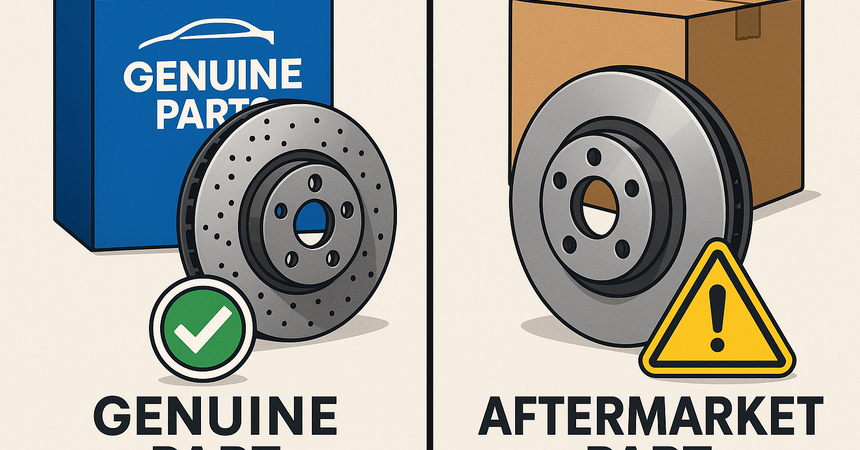Auto parts are one of the most in-demand product categories in the Saudi Arabian market. To successfully import and sell auto components in the country, proper documentation and mandatory certification through the SABER system are essential.
A key stage in certification is correctly identifying whether parts are classified as Genuine Parts or Aftermarket Parts. Mistakes at this stage can lead to import bans, fines, and significant financial losses.
Let’s break down the differences between these two groups, how to classify them correctly, and how to complete the certification process without issues.
What Are Genuine Parts?
Genuine Parts are original parts manufactured by the automaker or its official contractors. These parts are used on vehicle production lines and are distributed through authorized dealer networks.Key Features of Genuine Parts:
- Manufactured under the automaker’s standards and supervision.
- Supplied in branded packaging with official markings.
- Identical to the parts installed during the vehicle’s original assembly.
- Often come with quality certificates and official warranties.
What Are Aftermarket Parts?
Aftermarket Parts are non-original components produced by third-party manufacturers who are not official suppliers of the automaker. These parts may be fully compatible with a vehicle but are not officially recognized as original.Key Characteristics of Aftermarket Parts:
- • Manufactured using independent designs and technology.
- • Often differ in materials, design, or performance.
- Marketed as cost-effective alternatives to OEM parts.
- Not approved by automakers and usually not covered by official warranties.
Why Correct Classification Matters
Incorrect classification of auto parts can result in:- SABER registration rejections.
- Fines and import bans.
- Delays in delivery due to repeated inspections.
- Reputational risks for suppliers and distributors.
Accurate classification also affects customs duties and taxes, as different categories of parts may fall under varying rates and documentation requirements.
Certification Process in the SABER System
The SABER system requires different certification paths for each category:- • Genuine Parts typically need confirmation of official origin and a certificate from the automaker or distributor. In most cases, a declaration of conformity is sufficient, and additional lab testing is not required.
- • Aftermarket Parts must undergo full testing in accredited labs, including strength, safety, and local standards compliance. Each product code must be registered, and a complete set of documents is required.
Conclusion
Classifying auto parts as Genuine or Aftermarket is more than just a formality — it’s a critical step in ensuring successful and compliant sales in Saudi Arabia. Proper classification prevents customs issues, protects a company’s reputation, and ensures full compliance with SABER requirements.WorldWideBridge provides comprehensive support for auto parts certification. We help correctly classify parts, prepare documentation, coordinate with laboratories and certification bodies, and handle the entire SABER registration process.
Contact WorldWideBridge — we know how to get it done quickly, correctly, and cost-effectively.
